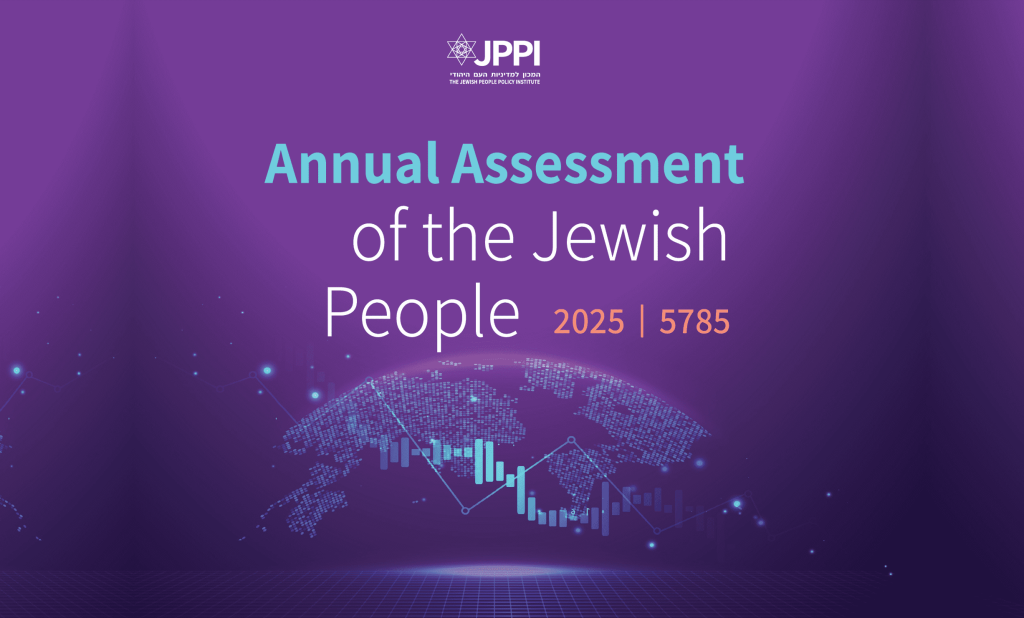This report offers decision makers a trenchant analysis and policy recommendations across six dimensions of the Jewish people’s well-being: geopolitics, cohesion, resilience, identity, demography, and U.S.-Israel relations.
Project Head: Yaakov Katz
Editor: Barry Geltman
Contributors: Elliott Abrams, Ita Alcalay, Nadia Beider, Shlomi Bereznik, Shlomo Fischer, Shuki Friedman, Yehonatan Givati, Amos Harel, Eli Kannai, Dov Maimon, Robert Neufeld, Shmuel Rosner, Amit Shoval, Noah Slepkov, Yedidia Stern, Gil Troy.

